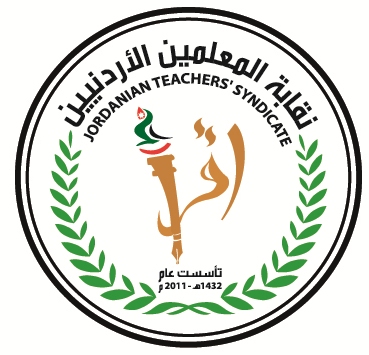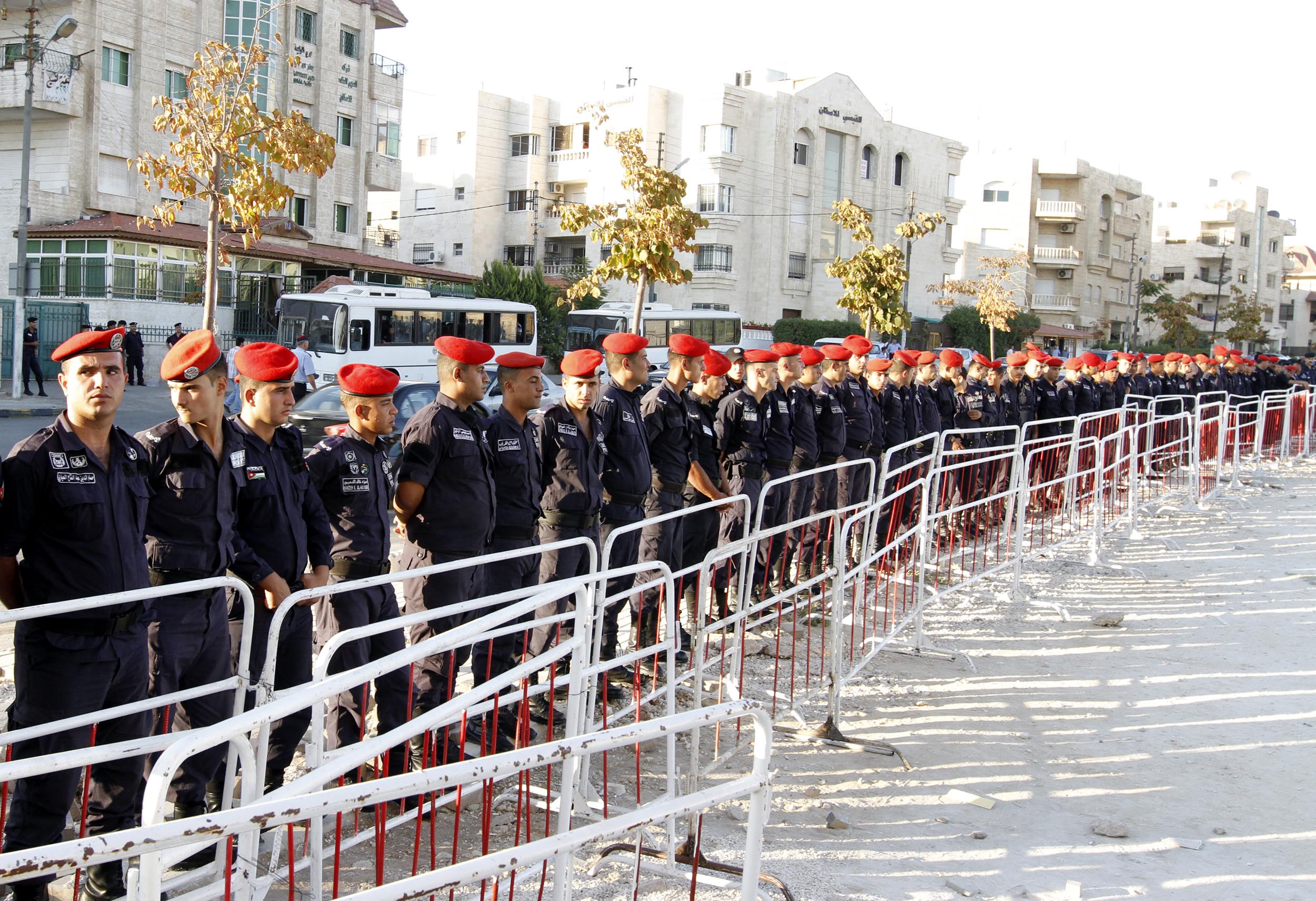
Jordanian Teachers’ Syndicate (JTS)
The Jordanian Teachers’ Syndicate (JTS) was an influential professional union that was re-established in 2011 after a ban that lasted over half a century. It represented teachers in Jordan, advocating for their rights and interests in accordance with Law Number 14 of the year 2011. With a membership encompassing approximately 140,000 teachers, the Syndicate played a significant role in advocating for the rights and interests of teachers, including improved working conditions, salary increases, and other reforms.
Since 2019, the Jordanian authorities have been engaged in a campaign of retaliation against teachers and union members who protest for improved wages and working conditions. This campaign has taken various forms, including: prosecutions of members of the syndicate's board; mass arrests; forced retirement of activist teachers; surveillance; and the use of "administrative detention," amongst other forms of harassment. In July 2020, the JTS was forcibly shut down when the police raided and closed its headquarters, along with all 11 branches and its training academy. Despite a final court decision in June 2022 to reopen the syndicate, it remains closed to this day.
In 2019, the JTS elected its fourth board, which focused on increasing salaries and improving working conditions. When the authorities failed to address their demands, protests and strikes ensued. The JTS organised a protest on 5 September 2019, which saw significant participation from teachers. However, the police used severe measures to prevent the protest, resorting to physical violence and humiliating arrests.
On 8 September 2019, a month-long strike commenced which marked the longest public-sector strike in Jordan's history, shutting down most schools in Jordan. The strike ended on 5 October 2019, when the Jordanian authorities signed an agreement with the Syndicate, pledging a gradual salary increase and the approval of 14 demands aimed at improving teachers' professional conditions. The Syndicate's Academy, which offers free training for teachers, was allowed to commence its activities by the Minister of Education. The Minister was dismissed two weeks after taking this decision, which is believed to be linked to the Academy’s competition for foreign funding with the royal-backed Queen Rania Teacher Academy.
In April 2020, the government froze the wage increase negotiated by the teachers' union, citing the COVID-19 pandemic as justification. The JTS protested against the decision, leading to increased retaliation from the government, including lawsuits against board members and an investigation aimed at dissolving and permanently closing the Syndicate. In July 2020, the Syndicate's headquarters, branches, and training academy were closed by the police, and its 13 board members were arrested and detained for a month. The Amman Prosecutor General ordered a two-year closure of the JTS, its branches and offices, along with the suspension of its board over criminal charges. A comprehensive gag order against the Syndicate board, banning them from discussing or reporting on the issue, including on social media, was issued. Teachers protested against these developments in July 2020, and the Jordanian security forces responded by arresting around 1000 teachers.
Throughout 2021, the government continued to target the Syndicate, announcing the early retirement of 62 union teachers, which sparked protests and accusations of targeted actions. The deputy head of the JTS and several members of the Syndicate's board were arrested in August 2021 while en route to a sit-in. The government further employed arrests, lawsuits, and forced early retirements to suppress activist teachers.
Additionally, on 24 and 27 March 2022, the Jordanian government resorted to the abusive "Crime Prevention Law" to justify the mass arrest of over 150 human rights defenders and activists, including members of the teachers' syndicate and other groups. This action was taken to pre-empt multiple planned protests against the government, including a weekly teachers' union sit-in. Operating under the provisions of "administrative detention" in the Crime Prevention Law, governors in Jordan have the authority to arrest individuals they deem "may" commit a crime. Security forces released all those arrested shortly after.
In a significant development, on 26 June 2022, the Amman Court of First Instance, acting as an Appeals Court, approved the dissolution of the Syndicate's Board while allowing the operation of the Syndicate to continue. This decision followed the Syndicate's appeal against its closure and the dissolution of its board by the state prosecutor. The court decision effectively necessitates the organisation of elections for a new syndicate board.
As per Article 27 of the Syndicate Law, in the event of dissolution, the Minister of Education is obligated to establish an interim committee to manage the Teachers' Syndicate and facilitate the election of a new board within six months. Despite the passage of a considerable period exceeding one year since the court decision of June 2022, the Jordanian authorities have not taken any steps to reopen the Syndicate or initiate the election of an interim committee as required by law.
Furthermore, in relation to the Jordanian authorities' utilization of surveillance measures against human rights defenders and activists, it has been documented that certain lawyers from the legal team representing the syndicate have been subjected to surveillance measures. This includes human rights defenders Hala Ahed and Malik Abu Orabi, who had their mobile devices compromised through the use of the NSO Group Spyware known as Pegasus.
Despite ongoing challenges and violations of union freedoms in Jordan, the JTS continues to fight for the rights and interests of teachers in Jordan, demanding improved working conditions and advocating for reforms.

